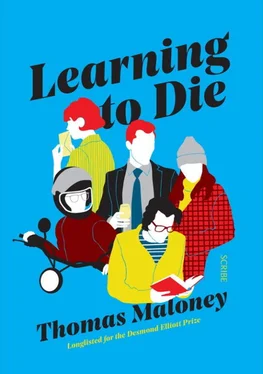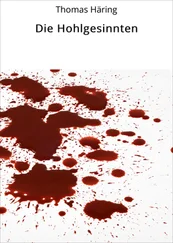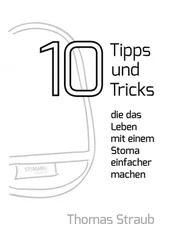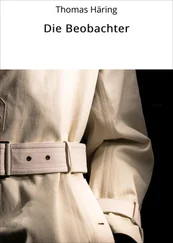He sniffs his fingers. Despite much scrubbing in the hotel shower, they still smell of fish. And he didn’t catch so much as an old boot. The room is connected to Dan and Natalie’s bedroom by a pair of new-looking sliding doors with electronic controls, now closed. When they arrived, James caught a glimpse of two beds — an adjustable hospital-style one with a hoist beside it, tubes, cables and whatnot, and a small, low single for Natalie. For Becks.
James is happy to be hauled up mountains by Brenda. But if something like this happened to him, and he could choose anyone in the world to look after him, it would be Becks.
The conger did not die in vain: even Natalie has to admit that Mike’s slow-fried steaks with Spanish paprika are a triumph. The man can cook. When he produces two bottles of what he calls the queen of Riojas, James makes a poor quip about drinking red wine with fish.
‘Whereof you know nothing—’ begins Mike, a corkscrew materialising in his hand. ‘Just trust me on this, if nothing else, okay?’
Dan is too tired to join the table for long, but he makes an appearance. He asks to taste the wine, which Natalie presents carefully to his lips, and then collects back into the glass: thin liquids make him choke. Everyone waits for his reaction.
‘I’m getting apricots ,’ he says. ‘ Liquorice. Marmite. The faintest inkling of squid. Wait, that could be Nat’s hands.’
While the others laugh, Natalie reflects with private, loving irony that it has taken total paralysis and an electronic voice to make a comedian of her husband.
When the community nurse arrives to help settle Dan in for the night, the Mocks excuse themselves. Natalie gives the nurse her usual verbal report, playing down the boat trip as requested, then sees her out and gives Dan his goodnight kiss. Then she returns to the dinner.
‘What about you, Bren?’ Mike is asking as she opens the door. ‘What is it you love so much about wandering off to the arse-end of nowhere?’
‘I love being alone,’ says Brenda, her back to the door. ‘I love having no responsibilities except to myself. No obligations gnawing at me, no stupid misunderstandings, no boundaries.’ Mike sees Natalie, and tries to cut his sister off. Both bottles are empty.
‘I did warn you about Bren,’ he says to James, with a laugh. ‘Ah, Na—’
‘James understands,’ says Brenda, sharply. ‘He feels the same way, which is why we get along. Right?’ Natalie looks at James, who gives a noncommittal smile to them both. Right enough. ‘I’ll tell you one thing,’ continues Brenda, oblivious, ‘I’m not about to start squeezing out babies. Sometimes I feel I’d like to take everyone who has any kind of claim on me, shove them in a top hat, wave a wand and make them disappear in a—’ she looks round, sees Natalie, and finishes her sentence in a softer, uncertain voice: ‘—puff of smoke.’
Disappear. Right. Natalie feels anger and sadness welling up copiously, without hope of containment. She turns, hurries out into the unlit kitchen, lets the sobs come.
‘I’ll go,’ says Mike’s voice, sharply, and then she hears chairs scraping and multiple footsteps. ‘Brenda!’ calls James’ voice. Sound of the front door opening and slamming shut. Mike is beside her in the dark, arm around her shoulders.
‘I’m sorry,’ he says. ‘She didn’t know. She doesn’t understand.’ Natalie turns on him.
‘And you do?’
Mike looks chastened. She’s never seen that ginger crest of his fallen like it is now. The look becomes him. ‘Let’s not argue,’ he whispers. ‘We’re all making this up as we go along.’
James’ face appears in the doorway, an apparition from the past, freezes and then retreats. His intimation, intended or not — that he was interrupting something untoward — is unworthy of a moment’s thought, but it nevertheless tempts her involuntarily to compare James to Mike as she once compared him to Dan. Another stupid thought-crime — she commits too many, each adding its fresh cut to her bloodied self-respect (and people keep calling her a saint).
Mike is the shallower pool, of course: a picturesque but insubstantial lagoon of a man. Likeable, untrustworthy and emotionally retarded — or so she always thought. But after all he’s done for them over the past eighteen months, for Dan but also for her — especially for her, perhaps — she might have to reconsider. This isn’t the first time they’ve stood whispering in the kitchen with good intentions.
‘…on what small things depends our fortitude in dying…’
Montaigne
Sometimes Dan and Natalie go for a walk around the block. This takes them past the canal, where Dan likes to stop and contemplate the scene. There are ducks, perhaps, a pair of swans, a cormorant even, but these days Dan isn’t looking at the birdlife; he’s looking at the water.
One day at a time, and he tries to make each of them worthwhile. When he’s not being hoisted, shunted, medicated or otherwise feeling like a nuisance, he can read (but not for long); he can respond to his ex-colleagues’ respectful requests for technical advice on the synchrotron apparatus he designed; he can write emails to Mike or James; he can classify a few more galaxies in the crowdsourced astronomy project to which he contributes; he can reminisce. His brain is kept supplied with glucose fuel by the liquid feeds, with oxygen by the assisted ventilation he’s now hooked up to at night. As for his body, it’s not entirely inert but visited by strange twitchings and shiverings, memories and imagined sensations of movement, itchings and achings. There is more discomfort and indignity than acute suffering. It’s a life of sorts.
Natalie could understand him until the spring — several months after anyone else — but then the last of his consonants escaped him and he had to resort to typing. For reading and browsing he uses an eye-operated computer, but for simple communication tasks his left thumb just keeps soldiering on, defying the doctors. Weakening of his swallowing muscles brought on the choking episodes which have been perhaps his darkest moments, but those are largely behind him now. This first available exit he passed by — chose life, and tube-feeding. He can still manage soups and smoothies by mouth: between them these cover an impressive array of taste sensations (not a rasher-of-bacon sensation, sadly, or that favourite warm-smacky glass of red). Saliva mostly exits via the corner of his mouth, but neatly now. Adapt, adapt, adapt.
The next exit opportunity seemed to be approaching fast when his breathing difficulties began, but these have now stabilised. He needs the machine they call the puffer — ingenious yet inescapably horrifying — only at night. The disease has a habit of galloping along with intent, then taking forty winks at the roadside. He might be in for the long haul. But what about Natalie? One day for him; one day for her. Her life, its possibilities — that he never did enough to encourage — all on hold. How much longer?
An aura of dread surrounds this place now, hangs over the glinting water. He could get here on his own, and there is no barrier. It would be a messy way to go, upsetting for Nat, but he’s left it too late for the neater options: he can’t take drugs by himself, nor can he ask Nat or Mike to administer them. (They see a lot of Mike, these days — he’s always dropping by, always ready to help.) Dan thinks of those fish living their gloomy, secret lives at the bottom of the English Channel. Hauled up to their doom. Might he not reverse the process?
How much longer?
Meanwhile, James F. Saunders positions his new signboard prominently on the pavement. Chalked on one side: ‘The human heart, O Chactas, is like those trees which do not yield their balm for the wounds of men until they themselves have been wounded by the axe. Chateaubriand.’ On the other: ‘Truth itself is always halved in utterance. Lawrence Durrell.’ Plenty more where those came from.
Читать дальше












